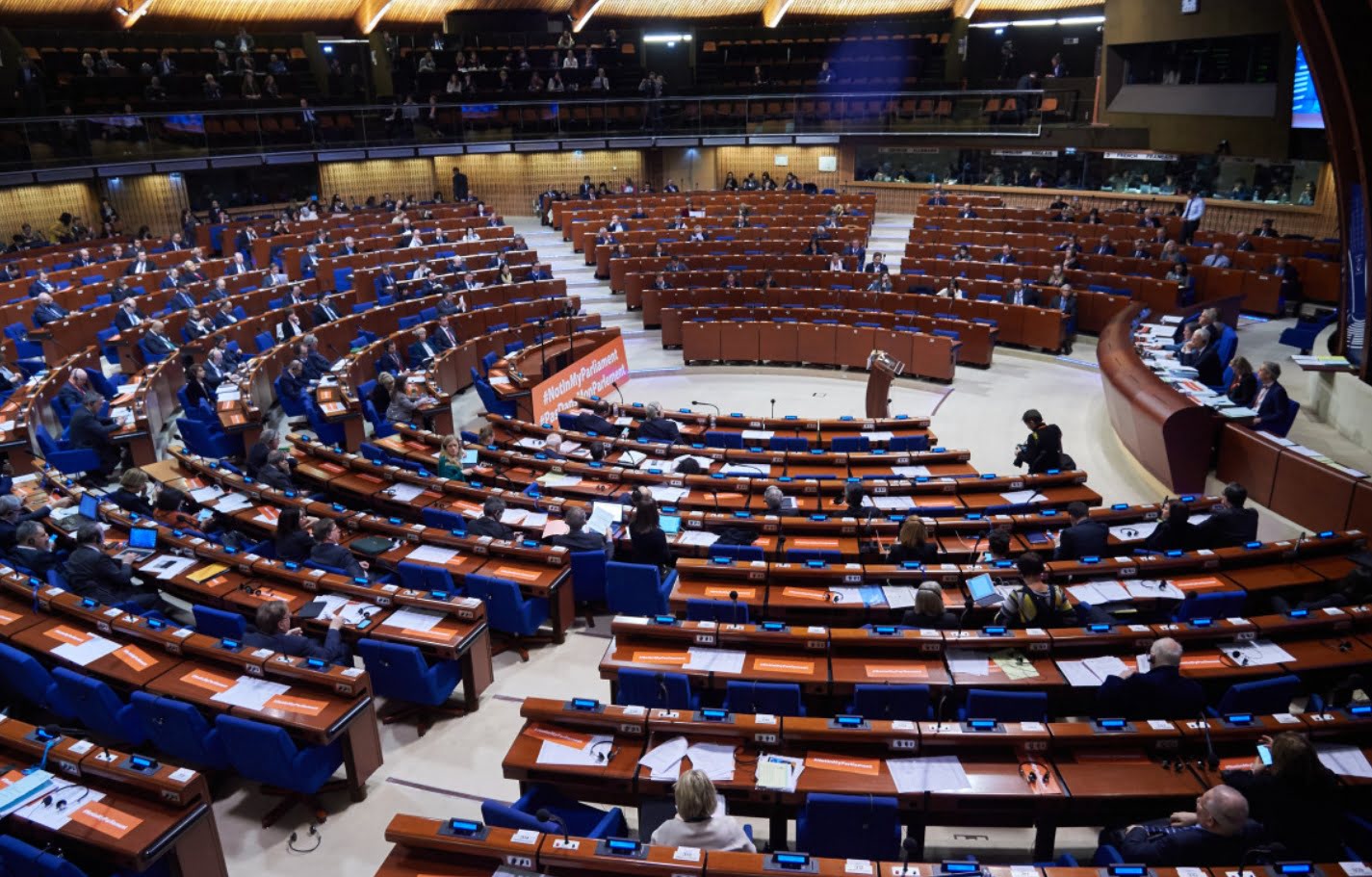
CoE Resolution on Georgia Honoring Obligations
The resolution on Georgia’s honoring of its obligations and commitments, adopted by the Parliamentary Assembly of the Council of Europe on April 28, has recognized the country’s continued progress but noted a number of shortcomings and concerns that remain to be addressed.
According to the document, “the extremely tense and polarized political environment” affects the implementation of crucial reforms and serves as a key impediment to Georgia’s democratic consolidation.
The Assembly said it considers successive elections in Georgia as conducted generally in line with European standards but noted with regret that recent elections have been a source of tensions and instability.
In this respect, it called on Georgia’s authorities to fully investigate any reported violence and pressure on voters, to revise the laws for campaign and party funding in line with the Group of States against Corruption (GRECO) recommendations, and to continue strengthening the impartiality of election administration.
In the resolution, the Assembly also said Georgia needs further efforts to continue strengthening parliamentary oversight, especially regarding the security services and their operations.
The document welcomed Georgia’s commitment to fighting corruption and encouraged the authorities to continue and, where necessary, step up their efforts, especially with regard to high-level corruption.
It regretted that a substantial number of GRECO recommendations from different evaluation rounds remain to be addressed.
The resolution noted that freedom of expression and freedom of the media are generally well respected in the country. But it expressed concern about the polarization of the media environment as well as actions and policies by the authorities that negatively affect its pluralism.
The document expressed its concern about Georgia’s legal framework for administrative detentions, noting that the current Law on Administrative Offences, dating from the Soviet era, is outdated and several of its provisions have been found to violate the Georgian Constitution.
Speaking of the issue of the “deported Meskhetian population,” the Assembly noted that a number of practical barriers continue to exist that prevent de facto repatriation, many of them beyond the competence of the Georgian authorities.
Further, the Assembly regretted that Georgia has not yet signed and ratified the European Charter for Regional or Minority Languages.
Reiterating its full support for Georgia’s sovereignty and territorial integrity, it deplored illegal occupation and creeping annexation by the Russian Federation of Georgia’s Abkhazia and Tskhinvali region/South Ossetia “that causes a dire security, humanitarian and human rights situation on the ground with increased illegal militarisation and restrictions to freedom of movement.”
Judiciary
Albeit noting improvements in the legal framework, the Assembly expressed concerns over the functioning of the High Council of Justice in Georgia, and reports of internal dependence and control over the judiciary.
It said further substantial reform of the High Council of Justice, the body overseeing the judiciary, is needed to ensure proper accountability and transparency of its decision-making processes.
“This is especially relevant with regard to the appointment of judges and other decisions affecting their careers.”
The Assembly regretted that the Georgian legislature has not implemented in time the recommendation of the Venice Commission over the appointment of court chairpersons, as the “current method is vulnerable for abuse and allows for undue influence by the High Council of Justice over the courts.”
The Assembly also regretted the controversy around the recent appointments of Supreme Court judges which it said underscored the deficiencies in the functioning of the High Council of Justice.
“Despite the substantial improvements as a result of… belated implementation of the relevant Venice Commission recommendations, the appointment process remains vulnerable to politici[z]ation and allows for arbitrary decision making which impede a fully transparent and merit-based selection process,” it added.